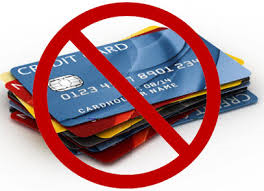
It may feel like the home stretch, but if you have been pre-approved for a mortgage on your next home, there are few absolute ‘no’s’ to keep in mind over the next several months. Remember that loan pre-approval is not loan approval.
Don’t apply for new credit
With a new home it can be tempting to apply for a credit card at a home improvement store or a furniture store to make your house a home, but applying for credit can lower your credit score. Not only will you lose a few points because of a credit inquiry, but if you are approved for new credit, a lender may worry that your debt-to-income ratio will change, making you a riskier loaner.

Don’t close any credit accounts
This may also seem like a great time to get all of your finances in order by closing unused credit accounts or transferring your debt to a new credit card with a zero-interest balance transfer offer.
While that’s a smart move financially, it’s a bad one for your credit score because you lose points when you have a higher usage of debt compared to your limit on one credit card and to your overall credit availability.
Don’t move your money
Your lender will need the most recent bank statements before you go to settlement, so if you have any unusual deposits you will need to provide complete documentation of where the money came from.
Don’t increase your debts
In addition to your credit score, your debt-to-income ratio is extremely important to a loan approval. If you take on more debt you could be in danger of going above the maximum acceptable debt-to-income ratio.
Don’t skip a payment or make a late payment
Your history of on-time, in-full payments of the most important elements of your credit score. Do not get caught up in the excitement and forget to keep up with your current finances.
One single 30-day late payment can knock 60 to 110 points from your credit score.
Don’t make any major purchases
Depletion of your savings or the addition of a new loan could derail your mortgage application.
Don’t change jobs
Even if a job change means a raise or career development, it could also delay your settlement. Your lender needs to verify employment and will need paystubs to prove your new income before your loan can go to settlement.
Don’t spend your savings
You’ll need cash on hand at the settlement for your down payment and closing costs and your lender may even verify your cash reserves one more time, so make sure the funds stay in place.
The key here is to ensure that nothing has changed since your pre-approval. You must take care to maintain the same credit profile that led to your loan approval until your mortgage paperwork is completely signed.
What advice would you offer buyers who are in the process of closing?
